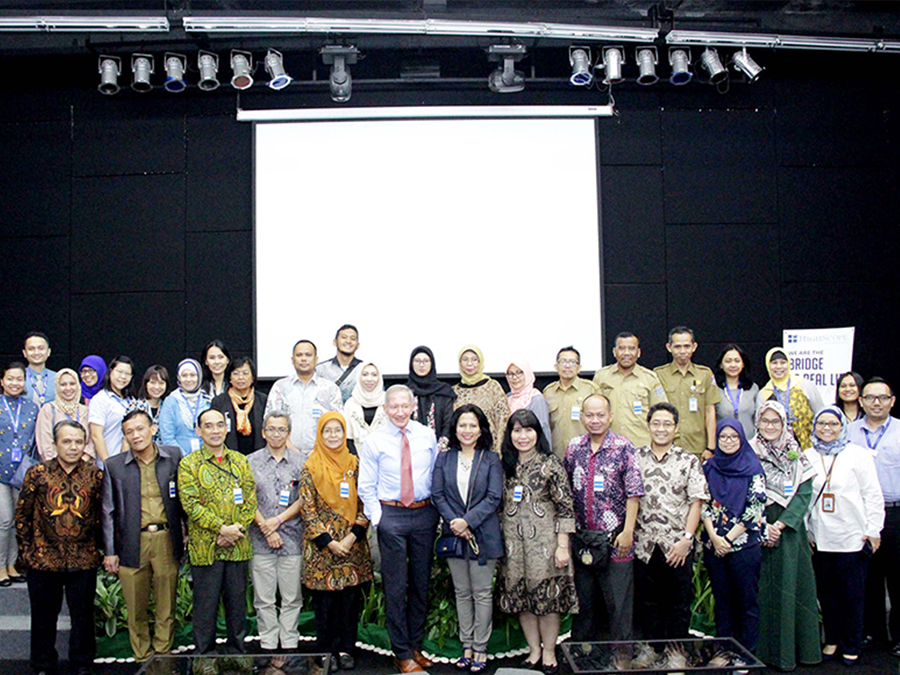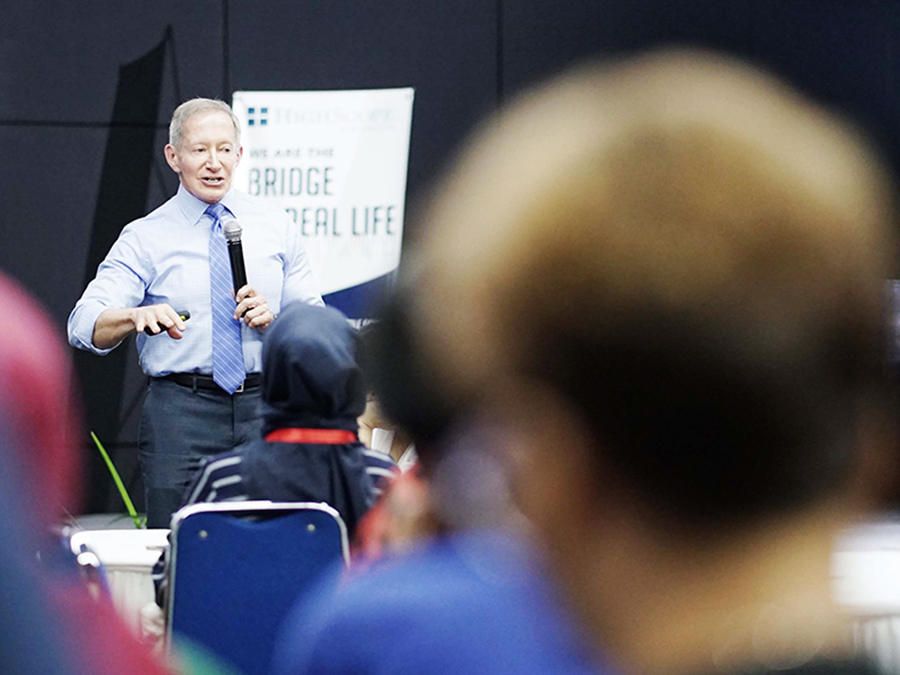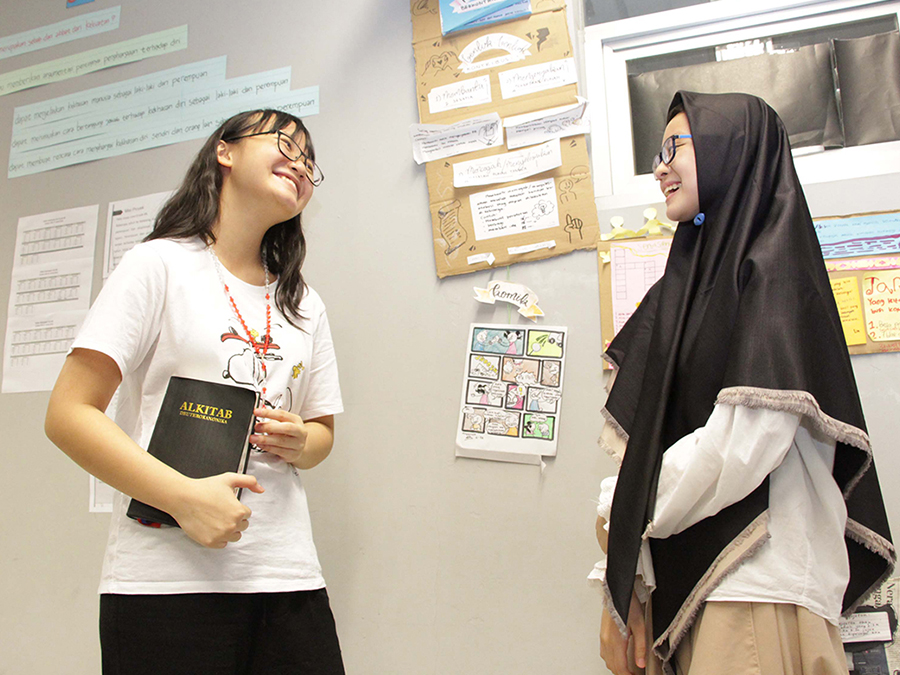 Highscope Help
Highscope Help
 Highscope Help
Highscope Help
Chat with our Network Representatives now:
“Resilient Diplomacy: Embracing Change for Global Progress”
The Real Form of Diplomacy at HighScope Model United Nations 2024
In a rapidly changing world, diplomacy skills are essential to addressing challenges both now and in the future. It is easy to forget how important diplomacy is, especially as the current generation witnesses how absolute power and violence tend to be the responses and answers to conflict. Isolationism and the tendency to prioritize one's own interests ultimately result in situations where negotiation is no longer an option.
In line with this, HighScope Indonesia aims to produce future leaders who have the life skills and values needed for success in the 21st century. This educational goal is achieved by designing a learning environment that is as similar as possible to real-life situations through various learning experiences (events), such as the HighScope Model United Nations (HSMUN). This activity provides a forum for participants to develop their competencies and interests by learning how the United Nations functions in relation to current world issues.
During the two days of HSMUN, the participants, consisting of 9th grade junior high school and high school students, devoted themselves to honing various important skills, such as public speaking, debating, writing, negotiating, conducting research, solving problems, forming consensus, compromising, and collaborating. Through this experience, they not only understand the importance of diplomacy but are also prepared to face global challenges in the future.
HighScope Model United Nations (HSMUN), which is a pioneer in UN simulation activities for high school education, has once again opened its doors to 256 students from 59 schools from DKI Jakarta, Bogor, South Tangerang, Bekasi, Bandung, and Makassar. The participants were encouraged to start from the very beginning to improve their understanding of diplomacy, global issues, and the ability to find solutions to solve global world problems. The next generation will have to shoulder the responsibility of leadership and make important decisions in the midst of this complex situation, so these kinds of skills are very important.
“Diplomacy rarely works; missiles keep flying and the world temperature keeps rising.
Diplomacy almost never works, until it does. When enemies decide to make peace, when drowning people finally learn to swim.”
This event was indeed created as a forum for academic training. However, we hope that with the complexity of the problems that can be learnt from negotiations between countries, we can facilitate substantive, inclusive, and compassionate discussions.” said Tubagus Farrel, Secretary-General of HighScope Model United Nations 2024, in his remarks at the opening ceremony.
The event began on October 25, 2024, with a technical meeting attended by all participants, and several guest speakers were present to share valuable insights. One of them was Biondi Sanda Sima, a digital government consultant for the World Bank, who shared his impressions of this year’s event: “This is my first time attending a high school Model UN event. About a decade ago, I participated in MUN when I was in college.
Seeing people at such a young age already so aware of global issues and so excited to meet new people, build common interests, and hone their negotiation skills... Honestly, this is something I have never seen anywhere else. I am very proud of every student involved, for their attendance and for managing the event.”
As in previous years, this technical meeting was also equipped with MUN 101, to equip participants with various event regulations and procedures.
The series of events then continued on October 30-31, 2024, starting with the Opening Ceremony, which presented other guest speakers, adding to the excitement of the HighScope Model United Nations. One of them was Mr. Caka Alverdi Awal, Director of International Security and Disarmament at the Ministry of Foreign Affairs of the Republic of Indonesia, who emphasised that a deep understanding of various global issues has a significant role in diplomacy, especially in decision-making, “Negotiation is very essential; understanding our interests and fighting for them through effective dialogue is key. Especially to navigate international issues, it is essential to build your awareness by engaging with various resources, such as media and literature. Reading will not only broaden your perspectives but also deepen your understanding of complex topics. I encourage the delegates present today to cultivate sensitivity to these issues, as it fosters empathy and sharpens sound decision-making.”
Also present was Mr. Saud Ringo, Deputy Director for the Japan Desk at the Directorate of Eastern Affairs of the Ministry of Foreign Affairs of the Republic of Indonesia, who delivered an important message to the delegates: "The most important part of understanding culture is communication itself. You need to talk to each other. The most important part of being a diplomat is talking to other people, talking to foreigners. People come from different cultures, different countries, and different backgrounds." He also added that this event has an important function as a forum for delegates to practice their diplomatic skills.
During the conference session, representatives from various schools will represent countries in the Model United Nations, and there are nine (nine) councils in total, including:
-
United Nations Security Council (UNSC): "Overcoming the Coup in Niger"
-
Historical Crisis Committee (HCC): "The Future of Hong Kong"
-
Economic and Social Council (ECOSOC): "Export Ban by Developing Countries". 4. ASEAN: “Commercialization of Green Energy”
-
World Health Organization (WHO): “Drug Addiction Recovery Methods”.
-
UN Special Summit (UNSS): “Safety at Hogwarts”
-
UN Journalists Association (UNCA): “Journalism in the UN Council”
-
Social, Humanitarian and Cultural Committee (SOCHUM): “Inhumane Detention Conditions”
-
DPR-RI: “Indonesian Maritime Security”
During the committee session, each participant or delegation will have the opportunity to explain their country’s position on the issue being discussed, defend their country’s arguments and rights, and try to gain support from other countries for the resolutions they have formulated.
Then, during the last day of the General Assembly, each delegation will present the resolutions they have created, and all delegates will vote to determine whether to support or reject the resolutions. The conference sessions, social gatherings, and general assembly were supervised by students from HighScope Indonesia School who have experience in Model United Nations in various countries, including the United States, Singapore, the Netherlands, and Indonesia. The HSMUN event ended with a closing ceremony that included awards for Best Delegation, Honorary Award, Outstanding Delegation, Best Position Paper, Oral Award, and Best Instruction.


